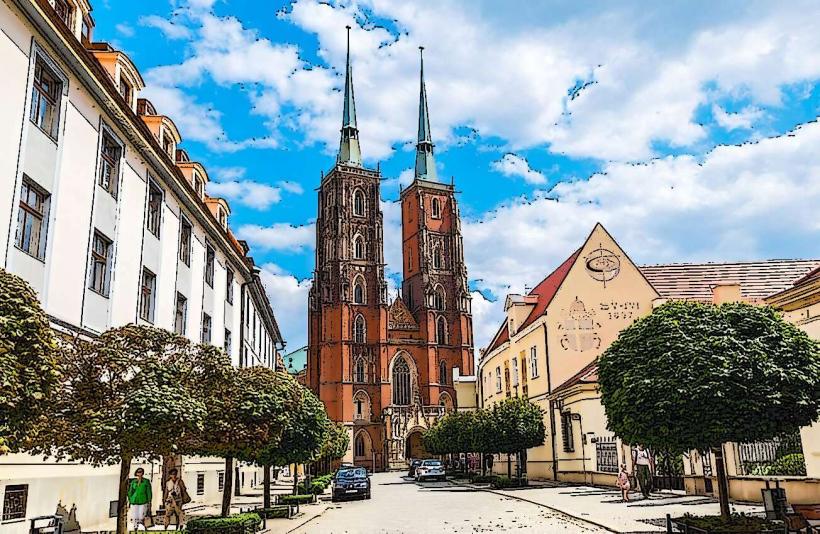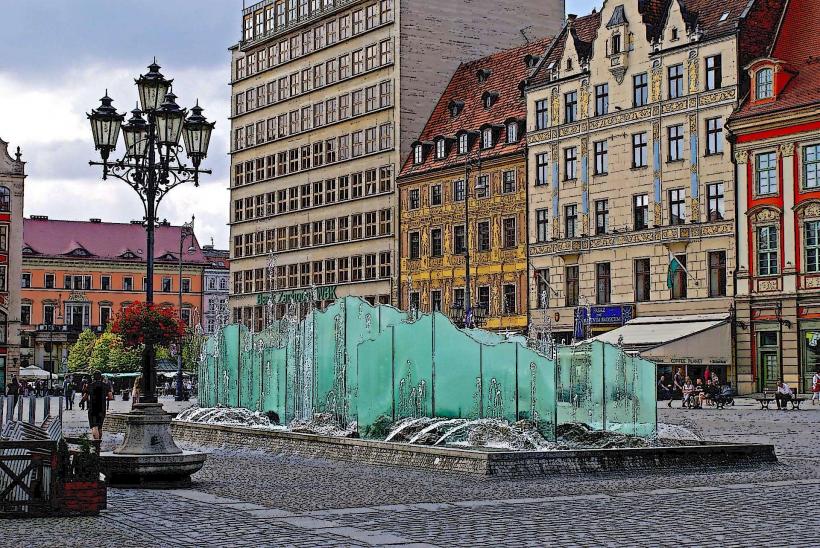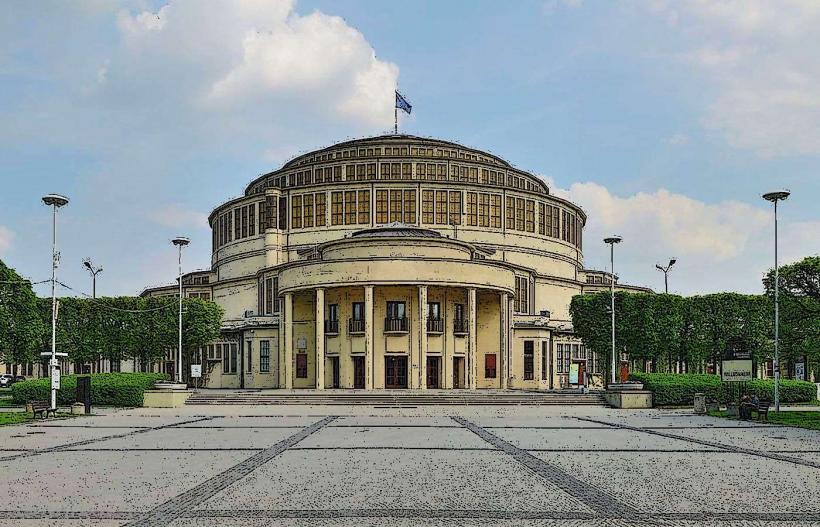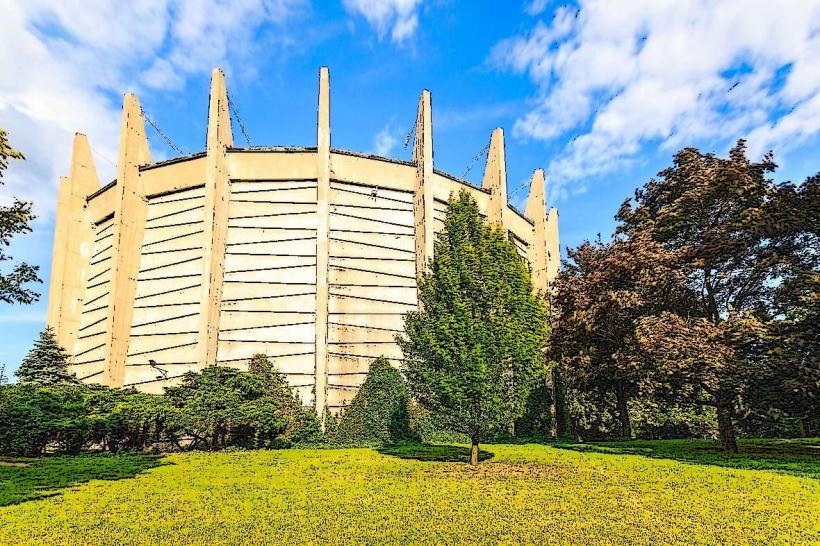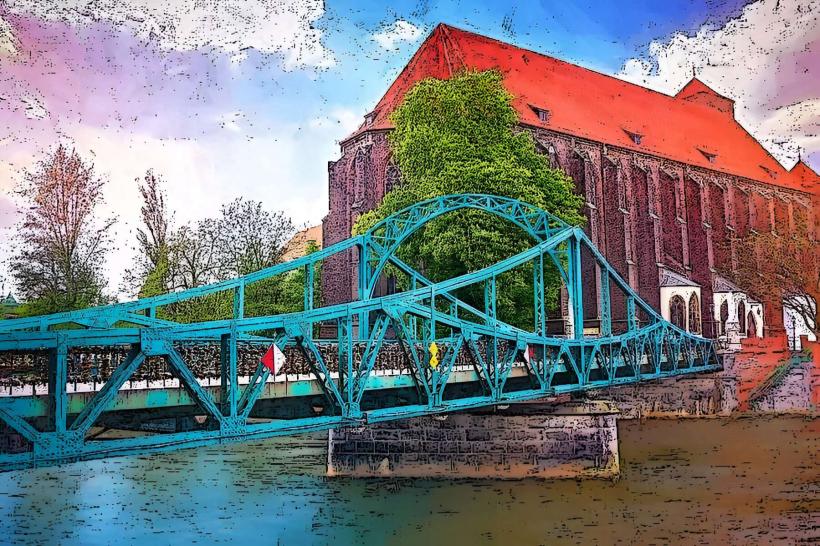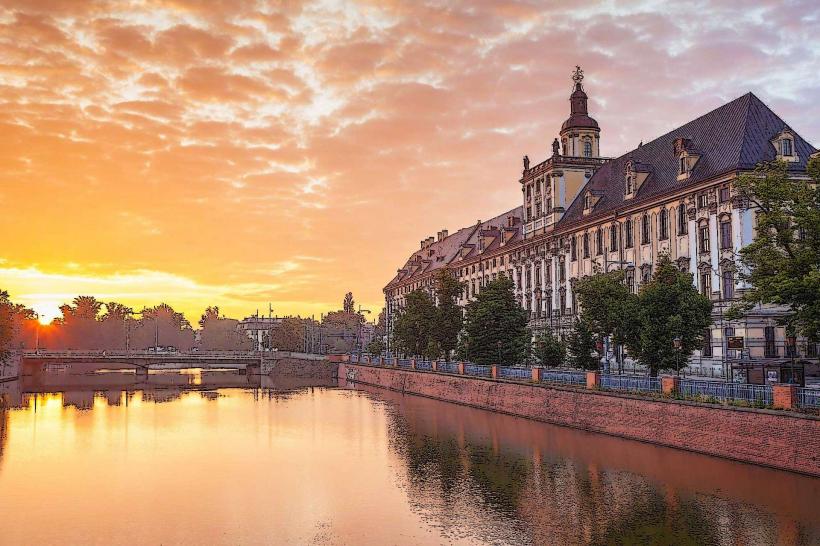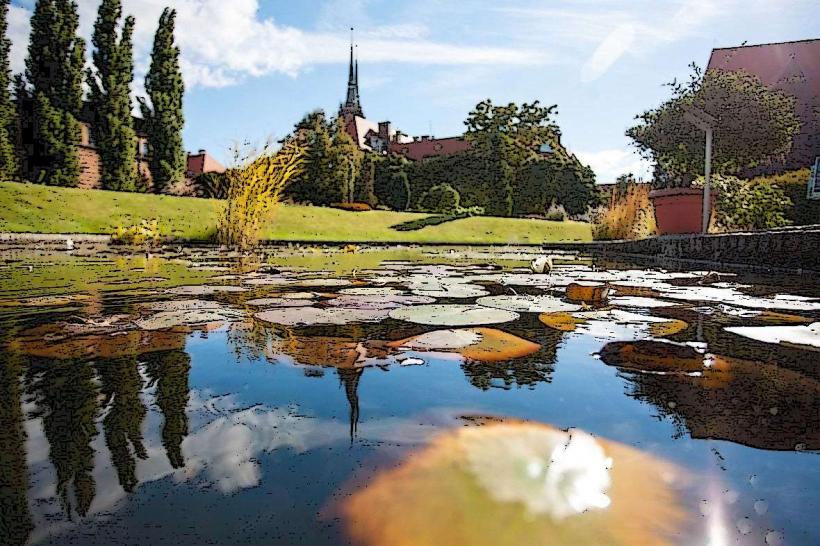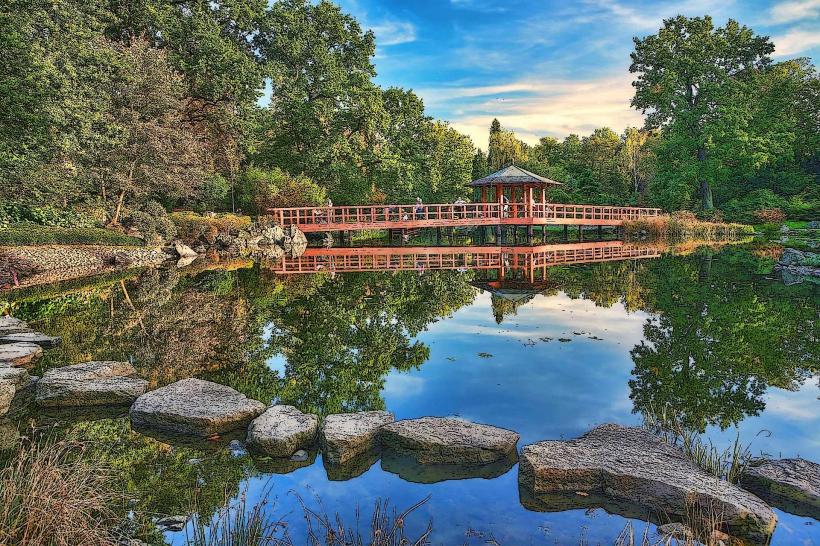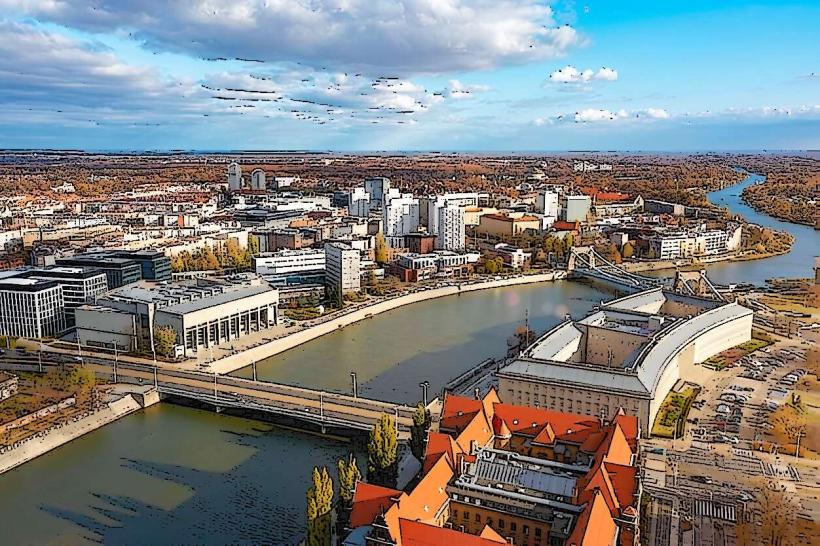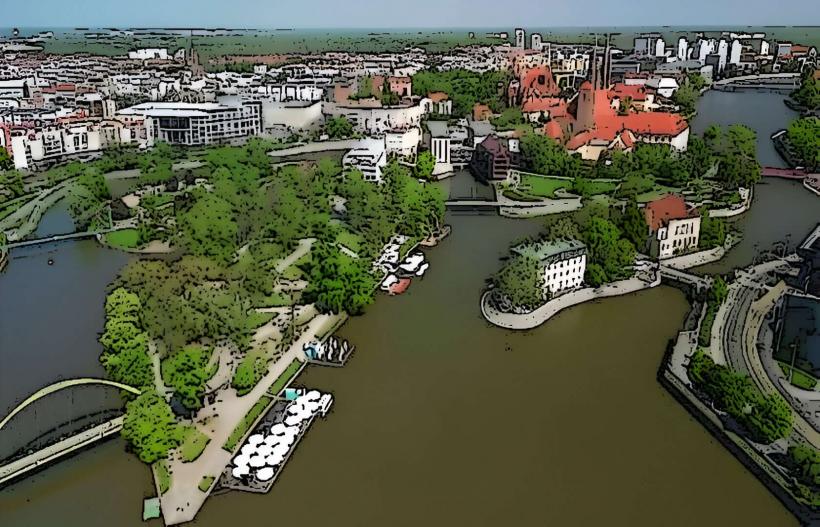Information
City: WroclawCountry: Poland
Continent: Europe
Wrocław, located in the western part of Poland, is one of the country’s most dynamic and culturally rich cities. The capital of the Lower Silesian Voivodeship, Wrocław is Poland’s fourth-largest city and has a long history, marked by its diverse cultural heritage and its role as a political, economic, and academic center. Situated on the Oder River, Wrocław has earned a reputation as a city of bridges and islands due to its location on the river and its many waterways.
History
Wrocław’s history is complex and has been shaped by various rulers, cultures, and nationalities. The city dates back to the 10th century and has been an important center of trade, culture, and politics throughout its existence. It was part of the Kingdom of Poland, and later, the Kingdom of Bohemia, before becoming part of the Prussian and German empires. The city was known by its German name, Breslau, until after World War II when it became part of Poland following the shifting borders.
Wrocław was significantly affected by the wars, especially during and after World War II. The city suffered extensive damage during the conflict, particularly during the siege of the city in 1945. After the war, the city’s German-speaking population was replaced by Polish settlers from the east, and much of the city was rebuilt. The city’s cultural and architectural landscape reflects this diverse and turbulent history.
Geography and Layout
Wrocław is situated on the Oder River and consists of several islands connected by numerous bridges, giving it the nickname "Venice of the North." The city’s layout is characterized by a mix of historical and modern architecture, with a particular focus on the medieval Old Town. The city is built around the central Market Square (Rynek), which is one of the largest in Poland and is surrounded by colorful, Gothic and Renaissance-style buildings.
Wrocław is divided into several districts, with the central Old Town being the heart of the city. The Odra River is lined with scenic promenades, parks, and recreational areas, adding to the city’s charm. The city’s green spaces, such as Szczytnicki Park and the Botanical Garden, offer residents and visitors a chance to enjoy nature in an urban setting.
Economy
Wrocław has a diverse economy, with key sectors including manufacturing, technology, services, and education. The city is one of the leading economic centers in Poland, benefiting from its proximity to Germany and other Central European countries. Wrocław has become an important hub for business services, including IT, finance, and outsourcing. Several multinational companies have established offices in Wrocław, making it a focal point for business and innovation in Poland.
Wrocław also has a growing technology sector, particularly in software development and tech startups. The city’s emphasis on education and research, supported by its universities and research institutions, contributes to its vibrant entrepreneurial environment.
In addition to industry and technology, Wrocław’s tourism sector is a significant contributor to the economy. The city’s rich cultural heritage, historical sites, and festivals attract visitors from around the world.
Education and Research
Wrocław is known for its strong academic and research institutions. The city is home to the University of Wrocław, one of Poland’s oldest and most prestigious universities, founded in 1702. The university is known for its research in various fields, including the humanities, social sciences, and natural sciences.
Other universities in the city include the Wrocław University of Science and Technology, which specializes in engineering, and the Wrocław Medical University. The city is also home to numerous research centers, particularly in the fields of technology, medicine, and environmental studies.
Wrocław’s academic institutions attract a large number of students, both from Poland and abroad, contributing to the city’s youthful and vibrant atmosphere.
Culture
Wrocław has a rich cultural heritage and is considered one of Poland’s most culturally significant cities. The city boasts a thriving arts and music scene, with numerous theaters, galleries, and music venues. Wrocław is known for its classical music performances, jazz festivals, and opera productions. The National Forum of Music and the Wrocław Opera House are two of the city’s most important cultural institutions.
The city also has a strong literary tradition, with numerous Polish writers having ties to Wrocław. The city is home to several museums, including the National Museum in Wrocław, which houses an extensive collection of art and historical artifacts, and the Wrocław Contemporary Museum, which focuses on modern art.
Wrocław is also known for its festivals, including the annual Wratislavia Cantans festival, a major event for classical music lovers, and the Wrocław Film Festival, which celebrates international cinema. Additionally, the city was named a European Capital of Culture in 2016, which helped raise its profile as a cultural destination in Europe.
Public Transport and Infrastructure
Wrocław has a well-developed public transport system, including trams, buses, and trains, making it easy to get around the city. The city’s tram network is one of the oldest in Poland and has been modernized in recent years to accommodate the growing population and improve efficiency.
The city is also well connected to the rest of Poland and Europe by rail and road. Wrocław has an international airport, Wrocław Copernicus Airport, which offers flights to major European cities and beyond. The city’s transport infrastructure is constantly improving, with ongoing investments in road upgrades, bike lanes, and public transport.
Green Spaces
Wrocław is known for its abundant green spaces, making it a city that offers a high quality of life. The city is home to numerous parks and gardens, including the Szczytnicki Park, which is one of the largest and most beautiful parks in the city. The Botanical Garden, located near the park, is a major attraction for plant enthusiasts.
In addition to these large parks, Wrocław has many smaller green spaces throughout the city, including the Odra riverbanks, which are lined with walking paths, gardens, and recreational areas. The city’s commitment to green urban planning helps to maintain a balance between urban development and nature.
Modern Development and Urbanism
Wrocław has undergone significant urban development in recent years, with modern residential and commercial buildings being constructed alongside historical sites. The city is focusing on sustainable development and is committed to improving its environmental impact through green building projects and the promotion of renewable energy.
The city has also seen an influx of new businesses, particularly in the technology and services sectors. This has led to a vibrant and diverse economy, with the city attracting workers and entrepreneurs from across Poland and abroad. The development of modern office spaces, residential complexes, and cultural venues continues to shape the city’s dynamic urban landscape.
Social Life and Lifestyle
Wrocław offers a high quality of life, with a range of amenities and services for its residents. The city’s café culture, vibrant nightlife, and diverse restaurant scene make it an attractive destination for both locals and visitors. The city is known for its relaxed atmosphere, with plenty of opportunities for outdoor activities along the Odra River and in the city’s parks.
Wrocław is also home to a thriving arts scene, with numerous galleries, theaters, and music venues offering something for everyone. The city’s large student population contributes to its lively social scene, with many bars, clubs, and cultural events catering to young people.
Challenges
Like many rapidly growing cities, Wrocław faces challenges related to urbanization, including traffic congestion and the need for affordable housing. The city is also working to address issues such as air pollution and improving the sustainability of its urban infrastructure.
Future Outlook
Wrocław is set to continue its growth and development as one of Poland’s most important cities. The city’s focus on innovation, education, and culture, combined with its rich historical heritage, ensures that it will remain a key player in Poland’s economic and cultural landscape. Wrocław’s commitment to sustainability and modern urban planning also positions it well for the future, as the city strives to balance its historical charm with the demands of modern living.

